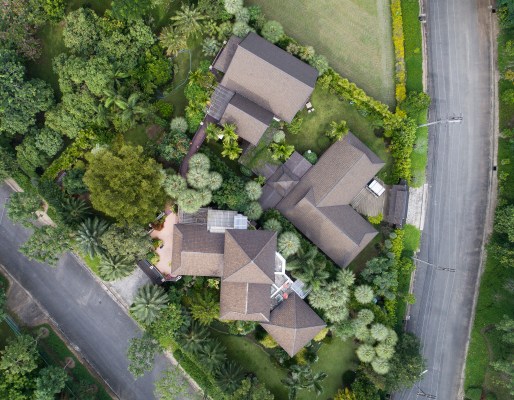
The race to deploy 5G infrastructure has unlocked a new use for the rooftops of restaurants, hotels, residential buildings and even hospitals and churches. Telecommunications leaders are eager to establish 5G technology in highly populated areas and are looking at the rooftops.
Next-generation wireless deployment is poised to be one of the largest allocators of lease revenue in the United States over the next five years, creating a huge opportunity for landlords and other business owners.
The Biden administration wants to expand the country's 5G infrastructure. $65 billion was allocated to expand broadband coverage to rural and underserved communities in the infrastructure package. 5G has a much shorter range than other wireless technologies, only reaching up to 1,500 feet.
5G technology is suited to deployment on existing building rooftops because of the reduced antenna heights for the next-generation wireless network.
Traditional cable companies and Big Tech firms are new entrants in the 5G deployment race. The companies are going to invest an additional $275 billion to deploy their 5G sites. Existing buildings are the only way to deploy the sheer quantity of deployment sites. The solution to the 5G race is to use a rooftop deployment strategy.
The market for wireless communications has been difficult to navigate. Long-term agreements between wireless carriers and tower companies have been less beneficial to the property owner in the past.
There is strong opposition to building new towers in many communities and the construction, permitting andzoning process can take a long time. 5G technology is suited to deployment on existing building rooftops because of the reduced antenna heights for the next-generation wireless network. Major institutional commercial real estate owners are better positioned than tower operators for carriers to achieve a faster, more efficient solution for their wireless real estate requirements.
A rooftop deployment strategy is beneficial to both the carrier and the property owner. Property owners reap the financial benefits of leasing their rooftops and monetize their existing buildings in new ways when carriers deploy their infrastructure as quickly as possible.
The impact on the net operating income for real estate owners can be substantial, increasing their access to capital. Landlords can provide better services to tenants with high-speed broadband if they collect payments in return for leasing its rooftop to the carrier.
What is at stake in the 5G deployment race?
The deployment of 5G infrastructure is important for the United States to remain competitive. 5G is mostly about driving innovation that will enable a range of business services from self-drive vehicles to improved supply chain management.
5G is expected to contribute over 1.5 trillion to the US GDP by the year 2025.
Universal broadband and 5G technology have been identified by the Biden administration as an economic equal for rural America. According to policy statements, rural Americans are more likely to lack reliable internet than urban residents.
The president and Congress prioritized investments in rural broadband infrastructure to bridge the digital divide and expand internet access in the areas that are underserved. Landlords with properties in rural areas could benefit from the expansion of 5G infrastructure.
Establishing a strong 5G network in the United States will be a long process. Property owners who are partnering with 5G providers and wireless carriers should be aware of the cybersecurity considerations of the technology as they house the infrastructure and offer the wireless network to their tenants.
Cyber risk was listed as the top current and predicted future risk in a recent Aon survey. The cybersecurity industry must continue to innovate and use machine learning and artificial intelligence in order to stay ahead of the game.
Building Cyber Security is one of the organizations we have seen to help provide guidance and a framework to improve cybersecurity in the real estate sector.
For property owners to effectively monetize their rooftops and participate in the race to 5G, government and private industry must continue to work together on an expeditious deployment of 5G infrastructure, including timely review of 5G installation requests.
There is more work that needs to be done at the state and local levels to improve the process for permitting the deployment of 5G antennas. Legislation to better address and develop a 5G strategy for their constituency is already being considered by many state legislatures.
The revenue opportunity for property owners is immediate and tangible, even though there is more policy and technical work to be done to fuel the race to 5G. The difference between shuttering storefronts and turning a profit is what the restaurant or hotelier will be able to make by monetizing their rooftops.
